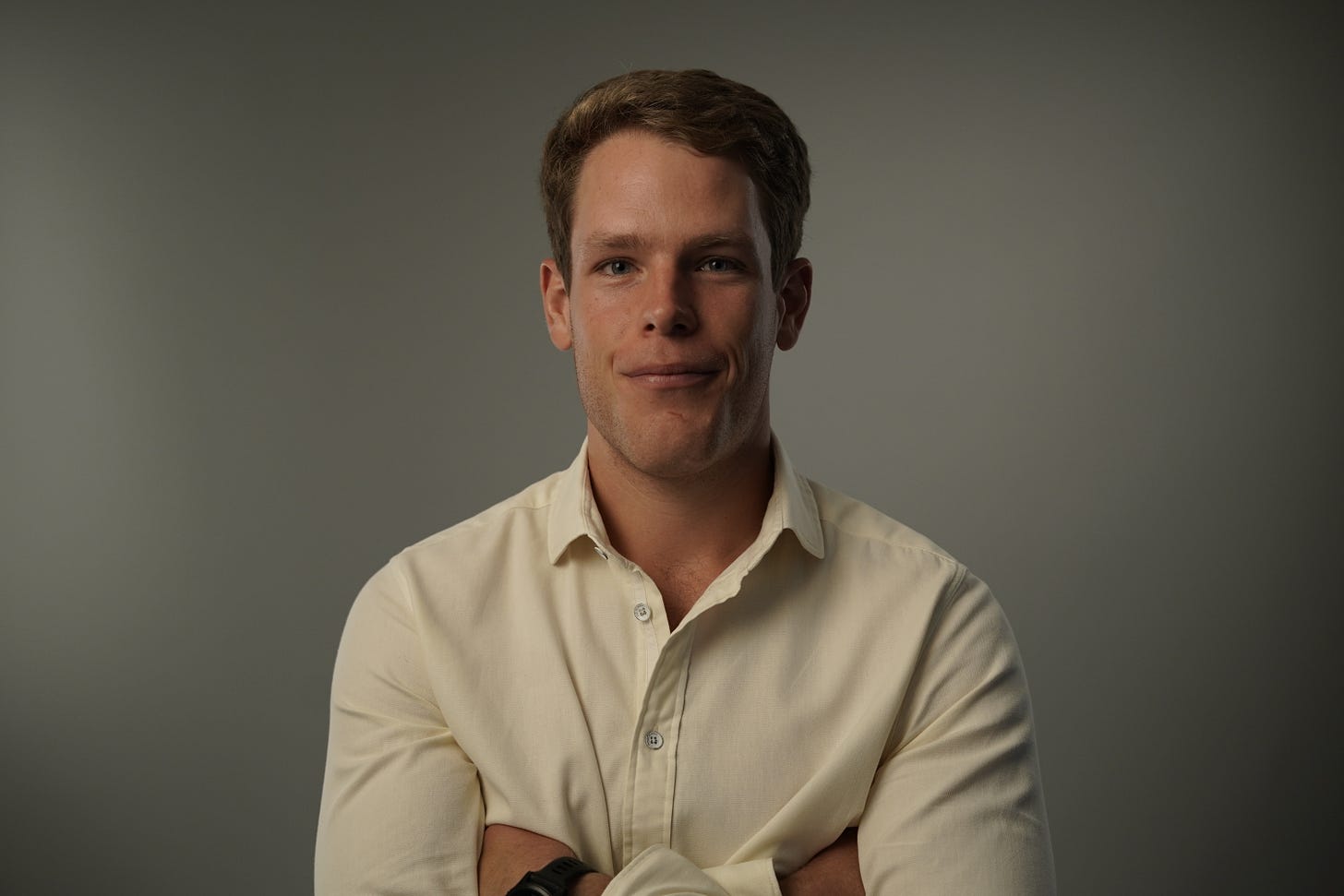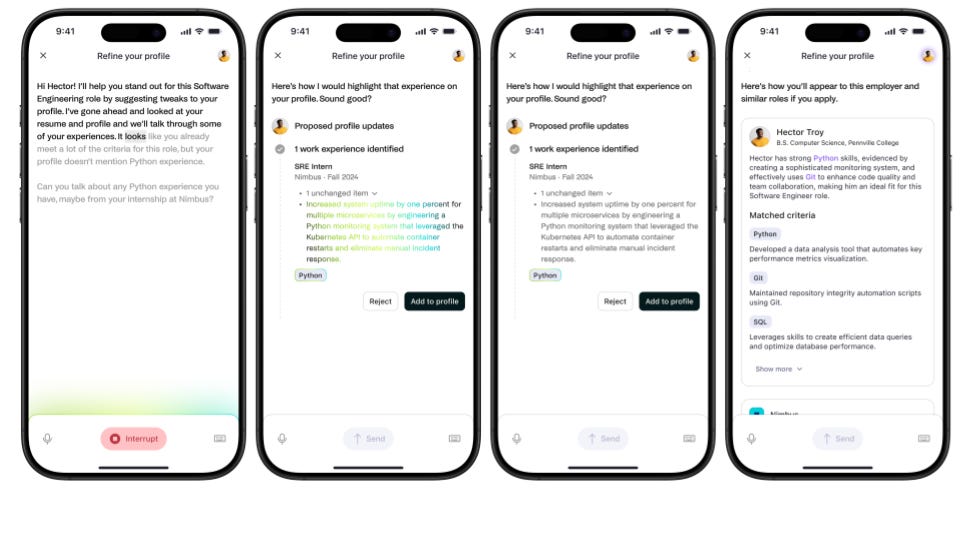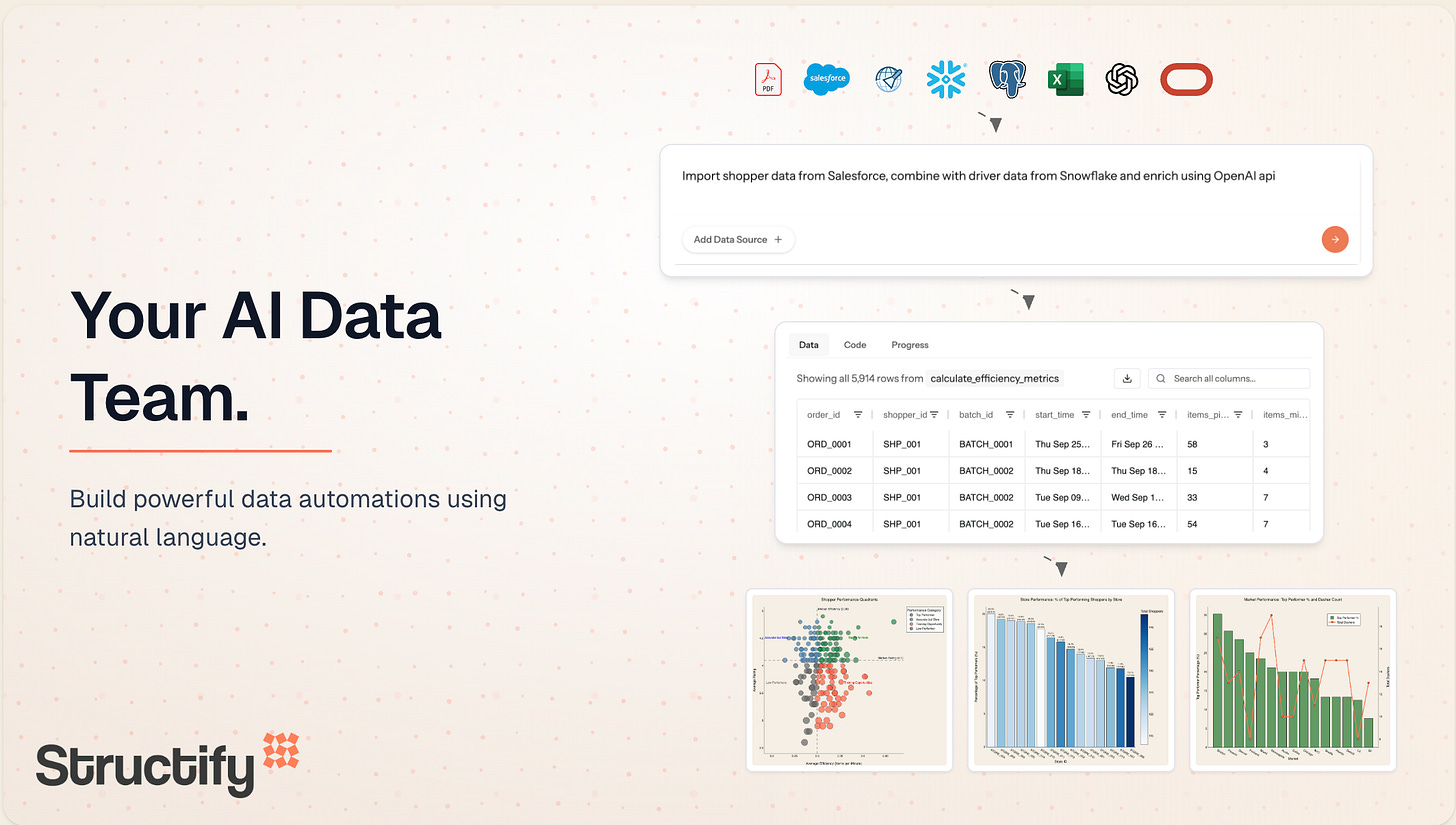Handshake's CEO Declares 'Refounding' Of His $3.5B Startup, All Around AI
Garrett Lord's refocus of his 11-year-old startup around its fast-growing ($100M in ARR) AI business includes a layoff affecting 15% of its employee base.

Handshake CEO Garrett Lord ended last year on a mission.
The startup founder should have had plenty to celebrate. Among the early-career set, Handshake had become a leading counterpart to LinkedIn, with 20 million students and professionals on its platform, across 1,600-plus schools.
And when it came to corporate logos, Handshake caught them all: the San Francisco-based startup claims to work with 100% of the Fortune 100. Its website is littered with megawatt logos, from American Express to McDonald’s and Nike.
But AI, Lord was convinced, was about to change everything – not just the way we hire, but the kinds of jobs on offer, too.
He was seeing it with the AI labs that tapped data labeling services like Scale AI to provide human experts to validate and improve their models, in what’s known as post-training; those companies were in turn leaning on Handshake to actually find those qualified scientists or PhDs, sharing a cut.
It was a business that Lord was convinced Handshake should be winning itself – and that would be just the start. So over Christmas and New Year’s, he worked the phone, explaining to board directors the change in direction, and recruiting new candidates for a new product team within Handshake.
“I felt it with all my intuition. I told my wife, Jessica, who was pregnant: ‘This year is going to be a lot’,” Lord, now a dad of a newborn, says. “There are times in your life when you’re like, ‘Oh gosh we could not be more well-positioned.’ And if we passed this up, it would be the biggest mistake of my entire life.”
Within just a few months, Lord was taking a victory lap this summer, going on a mini tour of the podcast circuit to explain how Handshake AI went from 15 people to 150, growing revenue from nothing to an annualized run rate of $100 million in just eight months.
Scale AI’s partial acquisition by Meta in June had proven an unexpected boost, with Handshake joining others like Mercor, Surge AI and Turing in pouring into the gap. The newest entrant, Handshake brought its network of half a million PhDs and three million Master’s students to the party, earning an instant seat.
“It’s been pretty epic, extraordinary to be working with all of the frontier labs on the latest and greatest of what they’re doing,” Lord says.
Handshake now expects its AI business to surpass its core recruiting one by year’s end, helping the company double its combined ARR to a forecasted $300 million by year’s end, and reaching “high hundreds of millions” next year.
So Lord is going “all in” in re-orienting Handshake’s entire business round its AI prospects. That means a “refounding” moment with new expectations for employees to grind hard and move fast, Lord says, in the pursuit of taking bigger product swings.
It also means that Handshake is letting go of dozens of employees who won’t be part of that push. From a U.S. staff of 650 last week, Handshake has laid off about 100 people, representing 15% of its workforce from across roles in its recruiting business vertical, the company wrote in a letter to employees posted online.
It’s a page out of the playbooks of Meta, Shopify, and other public companies whose founder CEOs have declared new mandates for leaner, faster growth in the AI era, but Lord doesn’t pretend it isn’t hard.
“Saying goodbye to people that have put a ton of passion, energy and hard work, and cared deeply about what we’re doing, that have been loyal and amazing employees – it really, really sucks.”
But it’s a move that Lord and Handshake’s board investors believe is necessary for the company to compete in this hyper-competitive moment, 11 years in.
“Winners and losers are being defined right now,” says Lord. “If we don’t go all-in, we are going to get lapped, because someone else will.”
More on Handshake’s ‘refounding’ strategy – including how it’s handled laid-off staff and its AI product strategy – below.
Presented by Structify.
Getting answers from your data shouldn’t take three days and two Slack threads.
Structify’s AI agents source, clean, and analyze data from anywhere — Salesforce, Snowflake, spreadsheets, PDFs, internal databases, even the web. Just ask in plain English and get instant answers.
Instead of chasing down messy data, you just ask — and Structify delivers.
No tickets. No technical skills. No waiting.
CTA: “Sign Up Now for $20 in Free Credits”
AI On The Menu
Handshake’s network, which partners with universities to bring their students onto its platform for career coaching, peer discussion and an expedited recruitment process with its corporate partners, was always supposed to have a second act.
But AI wasn’t the obvious destination, Lord’s own board directors say. When Mamoon Hamid, the Midas List investor at Kleiner Perkins, got the call from Lord last December, he initially responded: “This was not on my bingo card for you in the year 2025.”
Handshake got pulled into the business, Lord says, by the data labeling companies that hired it. Those companies were set up to work more like outsourcing shops of past tech cycles, hiring workers in developing nations to provide cheap feedback en masse, no higher education required. PhDs in chemistry or biology had different expectations.
“We started to hear from our users that they weren’t paying them on time, they weren’t feeling fairly trained,” Lord says.
Going into the business directly was a “nightmare” for those former partners, Lord says now. “We became enemy number one, because we can drive higher quality at higher volumes, faster than any other company in the space,” he claims “And that’s what the labs care about: quality, speed and volume.”
What Lord didn’t fully anticipate was just how much the demand for that business would change how he thought about hiring, and jobs in general, in the generative AI era.
Until a true artificial general intelligence, or AGI, is reached, companies will need human data by the tens of millions of experts, Lord says he now believes. More people will work part-time, gig jobs for the AI labs, he adds – especially academics and researchers who might have otherwise supplemented their income with part-time jobs like tutoring.
“The role of work will change a lot,” he says.
Handshake’s AI won’t just help connect experts to the model shops. The company plans to ship agents for both job seekers and recruiters that can expedite each process, making it easier to scan hundreds of roles for specific criteria that a job hunter might find compelling.

Lord invokes his own sister, whom he thinks would want a 5 days-per-week in-office job at an early-growth women’s health, defense tech or security startup in New York. “You don’t go on Indeed or LinkedIn and search for those profile vectors,” he says.
For employers, Handshake’s AI could help sift through candidates to pre-select more promising candidates, show the hiring manager their video clips, then automatically book interviews with finalists. (Lord thinks AI will change how recruiters operate, and how many a business needs, too.)
“What we do today with every single company is send them a ZIP file with resumes. That’s ridiculous. They should all be in ChatGPT,” Lord says.
Shaken Up
If Handshake didn’t cut headcount now and put all its collective energy into AI, Lord says the company would still be an “okay” business. But it would never be in the top decile of high-growers again, instead doomed to toil on smaller product updates for customers that might generate a few million dollars of added revenue each quarter or two.
That’s how unicorns gradually decelerate and die, Lord believes. His board director Jeff Richards, an investor at Notable Capital, agrees.
“The challenge that a lot of these pre-GPT companies have in going all in on AI is that they don’t know what to go to, they don’t have something to run to. And what’s cool about what Garrett’s done here, is that it’s very clearly outlined.”
Handshake wouldn’t be the only unicorn to incubate a new, more promising product from within. Where it differs, Lord says, is that Handshake’s AI business only works because of its slower-growing core one, its three-sided talent marketplace. Allow it to deprecate, or grow stale, and Handshake would be effectively killing its golden goose.
So the balancing act is for the startup to streamline its entire company around a pursuit of faster growth and a bigger AI goal, Lord says, without simply pulling everyone off of the recruiting product.
The talent that will do well at Handshake 2.0, its CEO says, are employees across its products that are leveraging AI tools to improve their efficiency and willing to put in grueling hours in pursuit of longer-term, higher upside goals than shipping a quarterly feature.
“This will hopefully be the most intense job you’ve ever worked,” Lord warns any incoming engineers. “If you don’t want to sign up for that, that’s totally cool. There’s no bait and switch.”
Nothing that Lord says can quite obliviate the bitter irony in the fact that Handshake’s next chapter, and plans to aggressively hire, come at the cost of employees who may not have gotten the same choice.
Handshake says it’s taking measures to help those affected, including the removal of one-year equity cliffs for newer hires, and the provision of longer-tenured employees with more time to exercise options, as well as larger severance packages.
And Lord argues that being stuck at the alternative – a company losing in the long run – wouldn’t be better for anyone.
“We’re not doing this from a position of weakness, but we’re doing it to win the battle of the future,” he says.




I feel two ways about this one:
- it takes GUTS to make a move like this, especially for a business at 100M+ in ARR. So I respect their entire leadership team for working through this project and I hope it gives them an opportunity to hire back some of those who were affected.
- I wonder how far they thought through this pivot. I’ve worked with companies before that jump after the next shiny thing, and sometimes both miss it and also lose grip on what supported their initial growth phase.